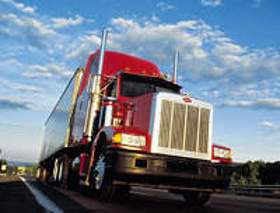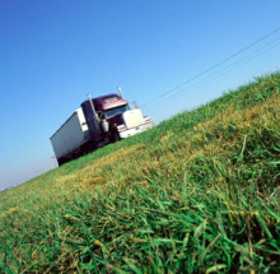


Email your truck driving questions to brett@truckingtruth.com and we'll get you an answer in no time. We may even include them here. If you'd like your questions kept private, simply say so - we'll respect your privacy.
For questions about becoming a truck driver, we highly recommend:
- Our trucker's forum which is full of friendly, helpful people
- Our TruckingTruth Facebook Page
- Our Truck Driving Blogs with almost 300 articles from over a dozen authors
- Return to the Ask A Driver Homepage
This question was in regard to a statement I made in one of my blogs titled Choosing A Truck Driving Job Part I: Factors That Effect All Companies. I was referring to the competition between drivers when I stated:
"Dispatchers are jockeying for the best loads for their drivers and the load planners are trying to run things as efficiently as possible. In the meantime, drivers are pushing their dispatchers for the best loads they can get. Well, there are only so many "desirable" loads to go around - so who gets the best ones?"
The question I received from Shane was an excellent one. He says:

"I understand most drivers are paid per mile, with this being said maybe you could help me understand how or why certain types of freight (or loads) can be more or less desirable to a driver on any given run? Thank You"
It's true that most drivers make the majority of their money getting paid by the mile. There are other things that you can get paid for, like making multiple stops on a run, helping to load or unload a truck, and layover pay. But probably 95% of the money you make will be mileage pay. So if you're getting paid by the mile, why would you care which load you get assigned to? As long as you're getting decent miles, why would a driver care? Well, there are a number of factors that make some loads much more desirable than others.
One factor is the region of the country you are picking up or delivering in. Almost 1/3 of the US population lives in the Northeast, and the cities in the Northeast are also the oldest in the country. Remember the pilgrims? Thank God they made us study them for years and years! How helpful was that? Ok, sorry - off topic rant. Anyhow, that's the oldest region of the country as far as the age of the cities, the roads, and the bridges are concerned and that is where you'll find a lot of:
The Northeast is by far the most difficult region in the country to navigate in a tractor trailer, so 200 miles in the Northeast is nothing like 200 miles in Nebraska, or Texas, or Arizona. And 300 miles in Florida in January is nothing like 300 miles in Minnesota in January!
Another factor would be the weight of the load. At times, like in the wintertime in the midwest, having a heavy load can be quite helpful. It helps the truck grip the snow better, and resist the crosswinds that will blow a light truck around, especially on slick roads. In the summer, there is no advantage to having a heavy load. Obviously the mountains are the biggest concern when dealing with a lot of weight, but the DOT and the weigh stations are of course another concern. If the load is near the weight limit, you're more than likely going to have to weigh it at a truckstop scale. That takes time and costs money out of your pocket. Of course your company will reimburse you for the cost, so the money should be no big concern, but the time it takes to go out of your way to scale the load is not usually what you're hoping for. Time is your most precious commodity.
Whether or not the load will take a long time to load or unload is also a factor. If you can do a "drop and hook", where you just pull into the customer, drop the trailer you have, hook up to another one, and go - you can be in and out in 30 minutes. But there are places that you will wait hours and hours to load or unload and you're normally not getting paid for that. If you are, it's very little, and it's not worth the trouble. Schedules are usually tight and the last thing you want to do is be held up sitting in a parking lot for ten hours. Believe me, it happens to everyone from time to time, but you'd obviously like to avoid it if you can.
Another factor would be the type of load it is. Some loads, like HAZMAT loads, are a huge pain! There are a ton of extra regulations that come with hauling a HAZMAT load and I used to dread them. Your company usually won't pay you any more to haul one, either. I'm not going to go into the specifics about HAZMAT right now, but believe me, it's a pain in the ass when you get stuck with one of those loads.
The length of the run is yet another consideration. You're getting paid by the mile so you want all the miles you can get most of the time. Now many companies will pay you a little more per mile for shorter runs, but it doesn't make up for the money you lose running a 350 mile run versus a 700 mile run. Running a lot of miles is how you make your money. You don't want too many short runs or your paycheck will suffer.
There are a million different factors that go into the "desirability" of any particular load and this was just a handful of them. As you get experience behind the wheel you'll figure out in short order what types of loads you would prefer under which circumstances. Unfortunately, there isn't always a lot you can do about it. Most companies do not give you a choice of loads. The best thing you can do is to be the best driver you can be and get to know your dispatcher and his boss really well. If you run hard, you're safe, you're reliable, and you're willing to run a few "lousy" loads sometimes, chances are they'll take pretty good care of you overall.

For questions about becoming a truck driver, we highly recommend: